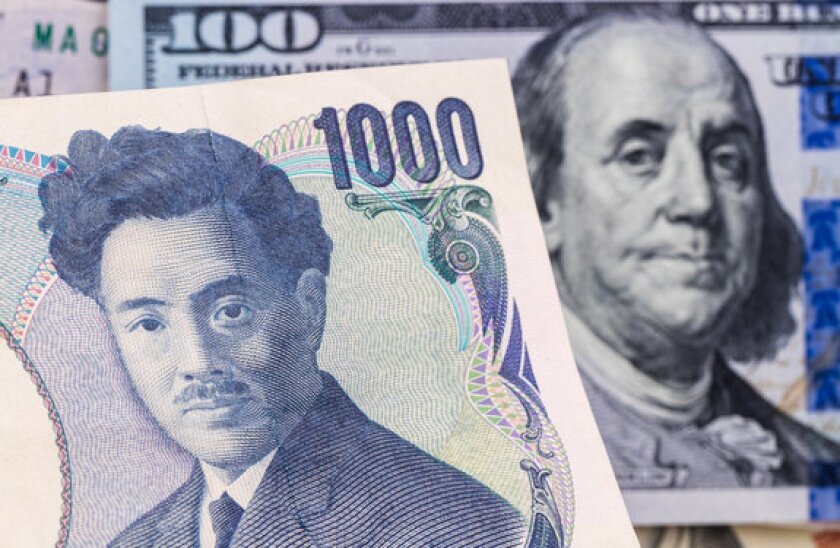The volume of Japanese bond issuance overseas has made for sobering reading over the last few years. In 2019, just $87.6bn was raised in dollar and euro bonds, down from $105bn in 2018 and $114bn in 2017, according to Dealogic. The long-run trajectory of the market is still positive — in 2010, they raised just $27.5bn — but for now, volumes remain tepid.
This is unlikely to last, say debt bankers. Japanese issuers can still find cheap funding in their domestic market, but it is much harder for them to find new business opportunities. The need for Japanese companies to expand overseas brings with it a need to fund in foreign currencies.
There were 826 overseas acquisitions by Japanese companies in 2019, according to Tokyo-based research company Recof. That demonstrates notable growth over the 778 transactions in 2018, and the 673 reported for 2017. SoftBank Group, the ultra-acquisitive telecommunications company and venture capital investor, is the poster-child for this overseas buying spree. But more conservative companies are also making the move.
“Japan is a small island,” says Naka Okuda, co-head of debt capital markets, capital markets origination at Citigroup Global Markets Japan. “More and more Japanese companies are focused on expanding their foreign business.”
The obvious beneficiary of this push for more overseas business will be the dollar and euro bond markets. Although Japanese issuers are eager to expand into southeast Asia, the paucity of funding options in that region means swapping from dollars is often the most economic approach. Low US interest rates — pushed down dramatically by the Federal Reserve’s response to the coronavirus — are another selling point.
In January, Japanese banks could price senior dollar bonds at about 75bp-80bp over US Treasuries, and strong corporates could price around 40bp-50bp over. These attractive pricing levels have generally created even more reason to look at dollars as a feasible option.
The current volatility means offshore investors are likely to be careful with how they allocate funds, but the strong credit strength of Japanese borrowers means they would be able to attract demand where other Asian corporations would falter.
“Japanese credit is a very nice product for US investors,” says Ryota Suzuki, head of Japan debt capital markets, Japan global capital markets for Bank of America in Tokyo. Europeans have likewise flocked to Japanese bonds as a diversification play, he says.
Covid-19 impact
But like the rest of the world, Japan has been hit hard by the coronavirus. As of April 21, Japan had more than 11,000 confirmed Covid-19 cases. Bankers in Tokyo, some of whom are still venturing into their offices, note how quiet the city has been.
The country is still well-regarded by international investors, meaning a flight to quality is likely to help some Japanese issuers. Many of these issuers are also savvy enough to understand that windows of opportunity will appear, forcing them to be ready to move at short notice, say bankers.

Japanese issuers may also have a degree of good fortune from the timing of their fiscal year, which starts on April 1. Issuance always tends to slow down in March and April, meaning the coronavirus has not undermined a wall of expected issuance.
Citi’s Okuda expects July, August and September to be busy for international funding.
“Several companies will not give up on funding in the international capital markets,” says Okuda. “They’re just preparing, and watching the capital markets situation.”
But there are clearly more downsides than upsides at the moment. The full impact of the coronavirus pandemic on the global economy is still uncertain, another cause of concern for debt bankers. Japanese corporations may need to pay up even in their domestic market but bankers say it is the dollar market that will take the biggest knock, although they also point to the risks from waiting for the perfect window.
“It would be concerning if Japanese issuers potentially hold off for a longer period,” says Misawa Kishinami, head of DCM at UBS Japan in Tokyo. “Any slowdown of the macro economy could worsen the huge pricing gap between the onshore and offshore markets.”
Even if there is a pick-up in domestic bond issuance over international funding in the next few months, companies will still be limited by the size of the Japanese market. Any issuer seeking large trades, such as banks topping up capital levels, will still want to use dollars, says Okuda.
The road ahead remains uncertain. Although Japanese issuers see offshore funding markets as a good way to meet financing goals and to fund overseas expansion, they may decide that the safest route is to stick closer to home. The dollar bond market will not be shunned by Japanese issuers but it is also unlikely to experience the sharp boost in issuance that bankers hope for. At least not yet.

